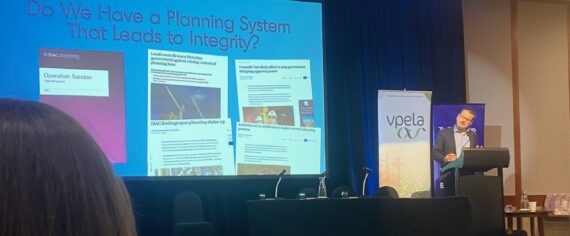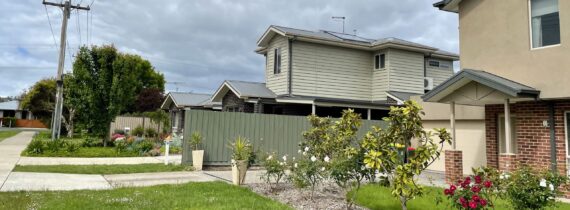As most Victorian practitioners will be aware, traditional ResCode has been heavily reworked and the old cl 55 turned into a heavily deemed-to-comply “townhouse and low-rise code.” Our ResCode course described below will obviously be reworked in coming weeks to reflect these changes. We are well placed to help your staff with this adjustment, with Stephen having been on the Technical Reference Group for the new code. We are eager to explore with local government leaders what their key training needs are going to be as the new code rolls out, so don’t hesitate to get in touch.
Stephen Rowley
This short course is designed to encourage staff to reflect on the particular challenges of making good decisions in the Victorian system. In a system where sometimes it feels any decision is arguable, how do we make rigorous, accountable, logical and ethical decisions?
This session explores ways to think about the decision-making process, common pitfalls, and strategies to improve decision-making.
Planning permits are legally binding documents. This means that preparing them is a from of statutory drafting. This is an important foundational skill for any statutory planner.
This session covers the basics of drafting planning permits that are easy to understand and legally robust. It also covers the less frequently discussed topic of how to prepare a good refusal.
The environmental and landscape suite of overlays require a statement of significance, and the land management suite of overlays require a statement of risk to be included in any local schedule that is applied. These statements are fundamental to the operation of local schedules, and there is limited guidance about how to draft them.
This course will set out the principles for drafting including drawing on the resources available through the Australian Disaster Resilience Knowledge Hub and provide best practice examples.
This session presents lessons from Stephen’s 25 years as a frequent, but somewhat reluctant, participant at the Victorian Civil and Administrative Tribunal. It covers tips for presenting, the challenges of presenting planning as a planner in a pseudo-legal setting, and the particular challenges of presenting cases for local government.
The Victorian VPP-based planning system appears to be built on well-designed foundations, based on seemingly sound principles of strategically-driven performance-based planning. Yet after more than two decades it struggles to achieve efficient decision-making and effective policy implementation.
In this reflective session Stephen explores why multiple rounds of system review have made such limited progress. In response, he suggests alternative approaches to structuring and writing planning controls that can help the Victorian system deliver on its potential.
Planning for settlements outside the metropolitan area and regional cities has unique challenges. This course provides participants with a straightforward framework to plan rural and regional communities efficiently, considering risk, seasonality, local industry and employment trends, servicing availability and realistic levels of community services and infrastructure that can be provided to support communities.
This is a reflective short session based on and expanding Stephen’s presentation at the 2023 VPELA conference.
It discusses the issue of integrity in planning, in light of the findings of IBAC’s Operation Sandon enquiry. It looks at the implications for decision-makers and policy-makers and examines the particular challenges of maintaining integrity within the Victorian system.
This is a session for statutory planning teams regarding the planning framework for live music.
It is intended as a refresher to help statutory planners meet their obligations in managing and protecting live music venues. It explores the challenges and tensions inherent in this issue.
This course is aimed at planners new to Victorian Planning, such as those fresh out of university or those coming from another jurisdiction. It covers the basics of how to use the planning system as a new planner.









